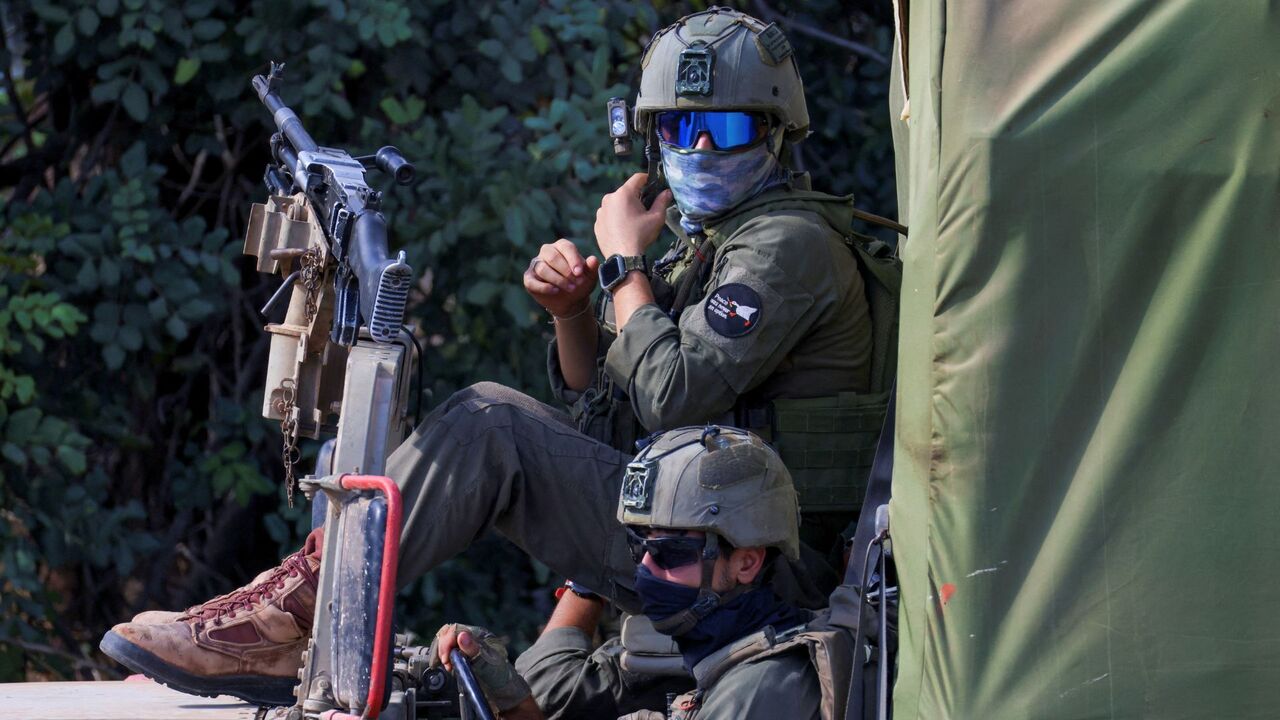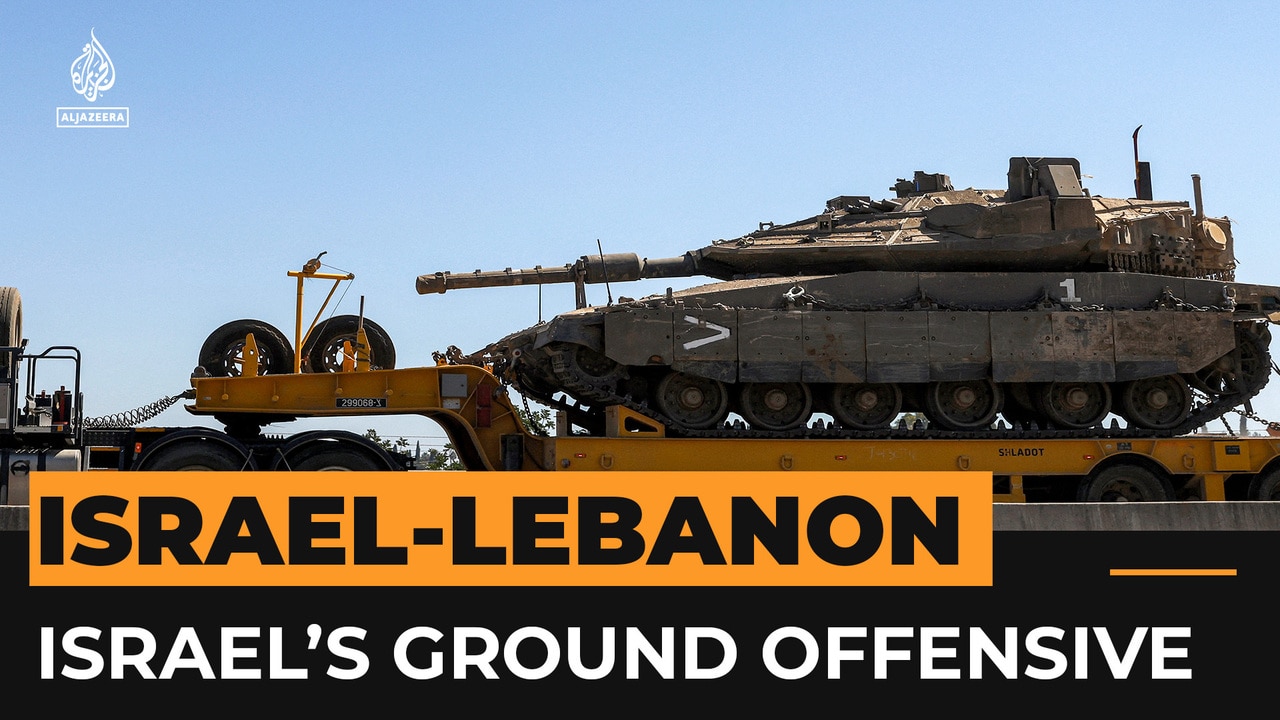Hezbollah lies low as Israel’s incursion into Lebanon gets under way
The Israel Defence Forces say their first overt ground operations in Lebanon for 18 years will root out Hezbollah’s missile launchers from tunnels near the border.

Equipped with night-vision goggles, small groups of armed commandos and paratroopers, backed by air cover as well as artillery shells fired from Israel, walked across the border into Lebanon.
The troops were veterans of the war in the Gaza Strip. Their mission: to carry out “limited, localised, and targeted ground raids” against Hezbollah militants and infrastructure in the south.
Hours earlier on Monday, local time, Israeli Prime Minister Benjamin Netanyahu had approved operation Northern Arrows, a long-threatened incursion into Lebanon to push back Hezbollah and stop the barrage of rockets, drones and missiles that has forced tens of thousands of Israelis in the north to flee their homes.
Emboldened by the killing of Hezbollah’s leader, Hassan Nasrallah, in an air attack involving 900kg bunker-buster bombs on Friday, Israel decided that now was the time to open up a second battle front.
“We have the great privilege of writing history, as we did in Gaza … to do it here in Lebanon as well,” the commander of the elite Egoz unit told soldiers before the operation was confirmed at 2am local time on Tuesday.
The Israel Defence Forces said their first overt ground operations in Lebanon for 18 years would root out Hezbollah’s missile launchers from tunnels near the border. Special forces soldiers had been carrying out advance raids across the frontier for nearly a year, the military added.
Hezbollah said its fighters were ready for a “direct confrontation” but denied that Israel’s forces had crossed into Lebanon. A Lebanese army source said the force had “not observed any penetration by Israeli enemy forces into Lebanese territory”.

But the cross-border attacks certainly continued from both sides. An Israeli airstrike struck a residential building near Beirut, causing damage and blowing out windows in the area.
Rockets were fired from Lebanon into the northern Israeli towns of Avivim and Metula, without reports of casualties.
The scope of the Israeli ground offensive remained unclear on Wednesday, with the UN peacekeeping mission in Lebanon saying it did not amount to a “ground incursion”.
However, the IDF declared another part of northern Israel a closed military zone, suggesting further possible attacks.
What comes after the so-called “limited operation” depends largely on the response of Iran and Hezbollah. But analysts have expressed their fears of “mission creep” should tensions escalate.
That could mean anything from tanks rolling across the border, perhaps as far as the Litani River, up to the full-scale occupation of a border zone.
“The IDF has numerous scenarios that we prepare for,” an IDF spokesman told The Times.
“(Occupation) is one of them. The plan we have put into practise now at the request of the political leadership is this targeted operation against infrastructure in the border area.”
Destroying that infrastructure may give Israel some satisfaction, but it knows it is only a temporary salve. Hezbollah has missile silos all over Lebanon, some of which have already been attacked. Some have longer range and others could easily be moved south once Israeli troops have left.
Hezbollah also has tens of thousands of operatives and an overground supply line from Iran, giving it the ability to build and import more missiles. Israel’s longer-term plan in that case is unclear, if it does not involve some sort of buffer zone of the type it had in Lebanon from 1982-2000.

That buffer zone was what Israel left behind after a previous “limited operation”. In 1982, Israel invaded Lebanon from the south, intent on routing the Palestinian Liberation Organisation that had long attacked its northern towns with rocket fire, and replacing it with something better.
Israel ended up marching on Beirut, causing widespread destruction even in the midst of Lebanon’s civil war, and bringing on its head the shame of massacres of Palestinian civilians at the hands of its allied Christian militias in the country. It did manage to expel the PLO, but it also became bogged down, and managed to extricate itself from the country only after 18 years. By that time, it was the Iranian-backed Hezbollah rather than the PLO that was at its border.
A UN resolution called on Hezbollah to withdraw some 30km north of the border to across the Litani River, which it failed to do.
The US has signalled its support for the operation, with officials saying it could pressure Hezbollah into a deal in which it effectively cedes control of its southern stronghold. But prolonging the war may give the militia, whose fighters excel at guerrilla warfare, a chance to pin Israel down in a deadly war of attrition.
THE TIMES



To join the conversation, please log in. Don't have an account? Register
Join the conversation, you are commenting as Logout